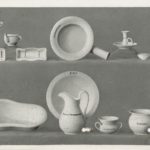
Date: 3rd – 4th May 2018
Location: Institute of History and Ethics of Medicine, University Hospital Hamburg
Deadline for abstracts: 15th Dec 2017
This 2-day workshop is organised by Dr Monika Ankele (Department for History and Ethics of Medicine at the University Clinic Hamburg-Eppendorf) and Prof Benoît Majerus (Centre for Contemporary and Digital History, University of Luxembourg). It is part of the research project “Bed and Bath: Objects and Spaces of Therapy in Psychiatry of the 19th and 20th century”.
In the past, our ideas of psychiatric hospitals and their history have been shaped by objects like straitjackets, cribs and binding belts. These powerful objects are often used as a synonym for psychiatry and the way psychiatric patients are treated. But what do we really know about the social life (see Majerus 2011) of psychiatric patients and the stories of less spectacular objects in the everyday life of psychiatric institutions? What do we know about the material cultures of these places in general?
The workshop will use the term “material cultures” very broadly and in the plural. This term refers not only to medical objects, objects of therapy and objects of care, but also to everyday cultural objects. The latter are subject to change when they enter the realm of psychiatry, where they become part of the specific cultural praxis of psychiatric institutions: a bed clearly changes its meaning in a psychiatric hospital, but so do flowers, a mirror and a blanket. The term “material cultures” also includes phenomena that have a material dimension like air, light, colours and sound (see Kalthoff et al. 2016). The use of the term in the plural should make us aware of the different, often competing cultural practices that emerge when we focus on the application and appropriation of objects and materials by patients, doctors and nursing staff. It also raises the question of the extent to which material cultures influence both therapeutic treatment and the production of knowledge.
Presentations should take into account the social and cultural background of objects of psychiatry, their various meanings and ways of appropriation and expropriation, their involvement in actions, their ability to act and to shape social and spatial relations as well as their reference to practices of knowledge, specific discourses and power relations. Corresponding approaches referring to the “material turn” are the focus of much interest in the cultural and social sciences and have been the subject of research in the history of medicine, but they have been neglected in historical research on psychiatry, at least in the German-speaking realm.
Possible research objects for your presentations could be the following: beds, baths, doors, corridors, walls, bed screens, tables, chairs, bedside tables and bath tubs; tools, dishes, knives and forks; murals, bars, fences, windows; bowling alleys; keys and locks; paintings, books, plants, flowers, mirrors; light, darkness, water, electricity, smells; syringes, needles, sleeping pills and tranquilisers, straitjackets, binding belts; blankets, pillows, sheets, clothes; straw, seaweed, horse hair, paper, packing material, cigarettes; telephones, typewriters; food, etc.
We are also interested in discussing the epistemic value of a material approach for the history of psychiatry and its possible additions to or corrections of this history. What agents, practices and social interactions come into view when we focus on the material dimensions of psychiatry? What agents and practices that previously went unnoticed gain significance by focusing on the material cultures of psychiatry? And what new perspectives on the psychiatric institution open up?
The working languages for the conference will be German and English. Please submit an abstract (max. 2000 characters) with a short CV to Monika Ankele by 15 December 2017. Inventive approaches and presentations are especially welcome. We would also be delighted to receive proposals for artistic work.
Please note that we are not yet sure that travel and accommodation costs will be fully covered.
It is planned to publish the papers presented at the workshop in an edited book. The contributions (15 to 20 papers) should be submitted by 10 July 2018 to ensure a quick turnaround.
Additional information relating to the CfP can be found on the following website.
Bibliography:
Kalthoff, Herbert/Cress, Torsten/Röhl, Tobias: Einleitung. Materialität in Kultur und Gesellschaft, in: Kalthoff, Herbert/Cress, Torsten/Röhl, Tobias (eds): Materialität. Herausforderungen für die Sozial- und Kulturwissenschaften. Paderborn 2016.
Majerus, Benoît: La baignore, le lit et la porte. La vie sociale des objets de la psychiatrie, in: Genèses 2011/1 (82), 95-119.

